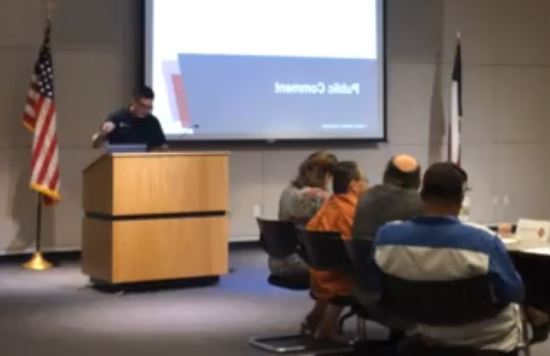City Charter Commission Hearing – April 25th – Chris’ Transcript

Regarding increasing the number of seats on the city council … on one end of the political spectrum is concern that the “voice” of the “only … reliable black seat” would be diminished from 1/11 to 1/13. While on the other end of the spectrum, there are worries about more seats essentially dilutes right-leaning seats.
Both are reminiscent of Lord Business of the “Lego Movie,” who had an army of micromanagers to make sure some things stay exactly as they are. Easier to control, perhaps?
Shouldn’t voters be the ones picking their representatives, rather than the other way around? What about the Asian voter? Where do most Jewish voters live?
The latter take carries a hint of defeatism. In the last couple cycles, outside of district 10, races in three other districts have either gone to runoff, or the winner cleared the field by less than ten points. Good candidates and good messaging arguably make those toss-ups.
The reason most governance is best handled locally is because we can almost reach out and touch our representatives. We’re more likely to see them out and about. My member of council’s kids for example, are in the same school bands as mine.
We’ve grown by almost two-thirds since we went to single-member districts back in the late 1970s. we shouldn’t continue to get closer to congressional representation numbers, or gerrymandering on something other than pure numbers of citizens.
About city manager pay … given the type of inevitably underperforming enterprise he/she manages, the pay is fine as-is, and being capped. Despite this, we’ve heard some try to leverage the current structure to raise the pay of the lowest paid city employees in the name of pay equity.
As is too often the case unfortunately, no thought is given to unintended consequences. In this case, that is increase costs for local business, which push them closer to closing their doors, and taking their jobs with it.
Small businesses, most of whom do well to get by, have to compete for labor. One of their growing competitors lately has been the city. It’s a poke in their eye that CoSA wants to be an “employer of choice.”
It’s hard enough to compete amongst themselves, much less against an entity that survives by forcing its hand into citizens’ pockets.
The more the city pays for labor, artificially above the market rate, the more mom & pops go under. And this is nothing a minimum wage or lumbering workforce training program like Ready to Work can ‘designed’ to fix.
Finally, we’ve heard appeals to dedicate a certain percentage of the growth in future budgets to youth programs. As a father of four daughters, I have a soft spot for such pleas.
A growth in the budget implies that tax revenue has increased. The first, most basic thing parents do for their children is put a roof over their head. That’s harder to do with soaring property taxes.
Council doesn’t have a hand in the bad policy from Washington D.C. that artificially pushes up home valuations, many doubling in the last couple decades. They could however, at least defend San Antonians from it by not voting for higher property taxes every September.
This is why, before we commit any more taxpayer dollars to any more spending, we should consider amending Section 91 of the charter. Future councils should be limited to spending tax seizures from the levels of five, ten, or twenty years ago, otherwise known as revenue neutrality.
Maybe then they’d have more of an incentive to put pressure on lawmakers in D.C. to implement a smarter monetary regime, instead of being content to take advantage at the local level.
Bottom line: families know better what’s good for their kids’ than a government-funded program does. The cruel irony is that “unlocking public funding to break the cycle of poverty” often has the opposite effect. Look how LBJ’s ‘War on Poverty’ has turned out.
Poverty is winning.